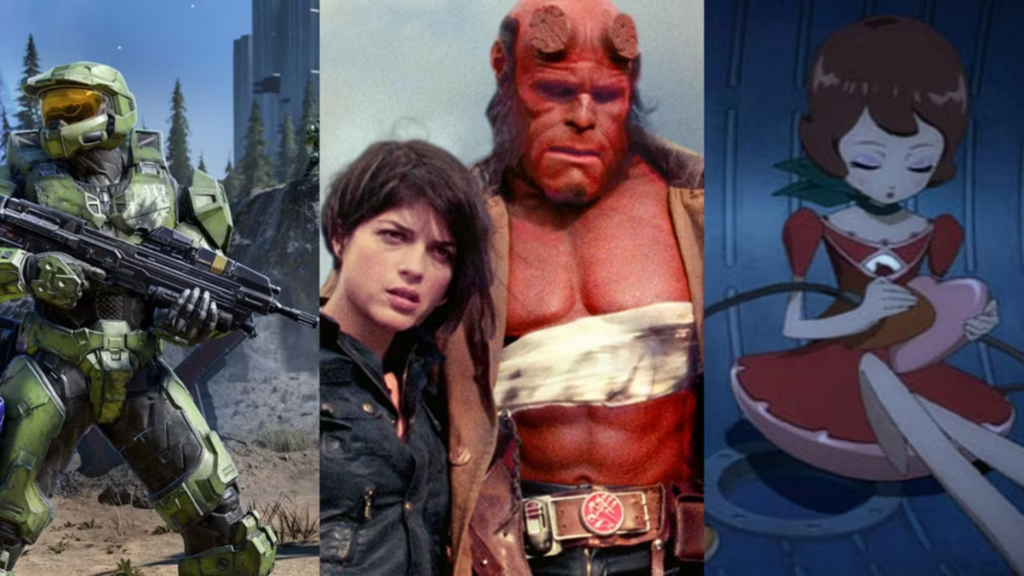Video Games are becoming more and more like movies, and this process goes in both directions. That means more and more video games have become adapted to the silver screen. However, this process is not guaranteed to be error-free. So, we at Blix reviewed the most famous games that failed to become movies. What a shame, do you agree?
Contents
Highlights
- Our picks for the most anticipated game-to-film adaptations
- Detailed review of each unhappened movie
Movies based on games have become infamous for their poor quality. We receive a dozen blatant flops inspired by games for every decent adaptation. This is true for blockbusters with massive fan bases, like “Warcraft” and strange imitations by maestro Uwe Boll. However, many of these films at least made it to the audience. But many potential “hits” were less fortunate, leaving many possible adaptations to remain only at the planning stage. Here are ten unmade movies based on video games for you.
Blix Top-10 Most Anticipated Unreleased Movies
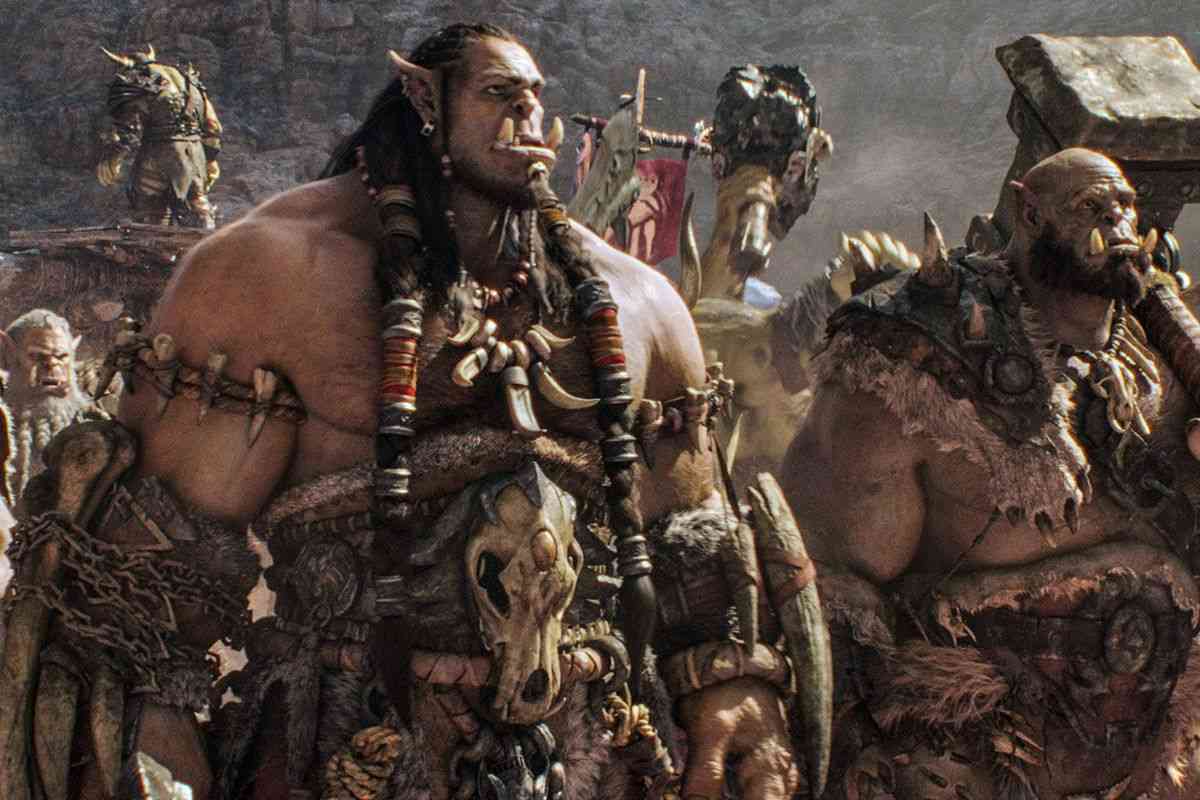
They are anticipating
- Mass Effect
- God of War
- Bioshock
- Halo
- Call of Duty
- Oddworld
- Castlevania
- Metroid
- Monkey Island
- Rainbow Six: Patriots
Mass Effect
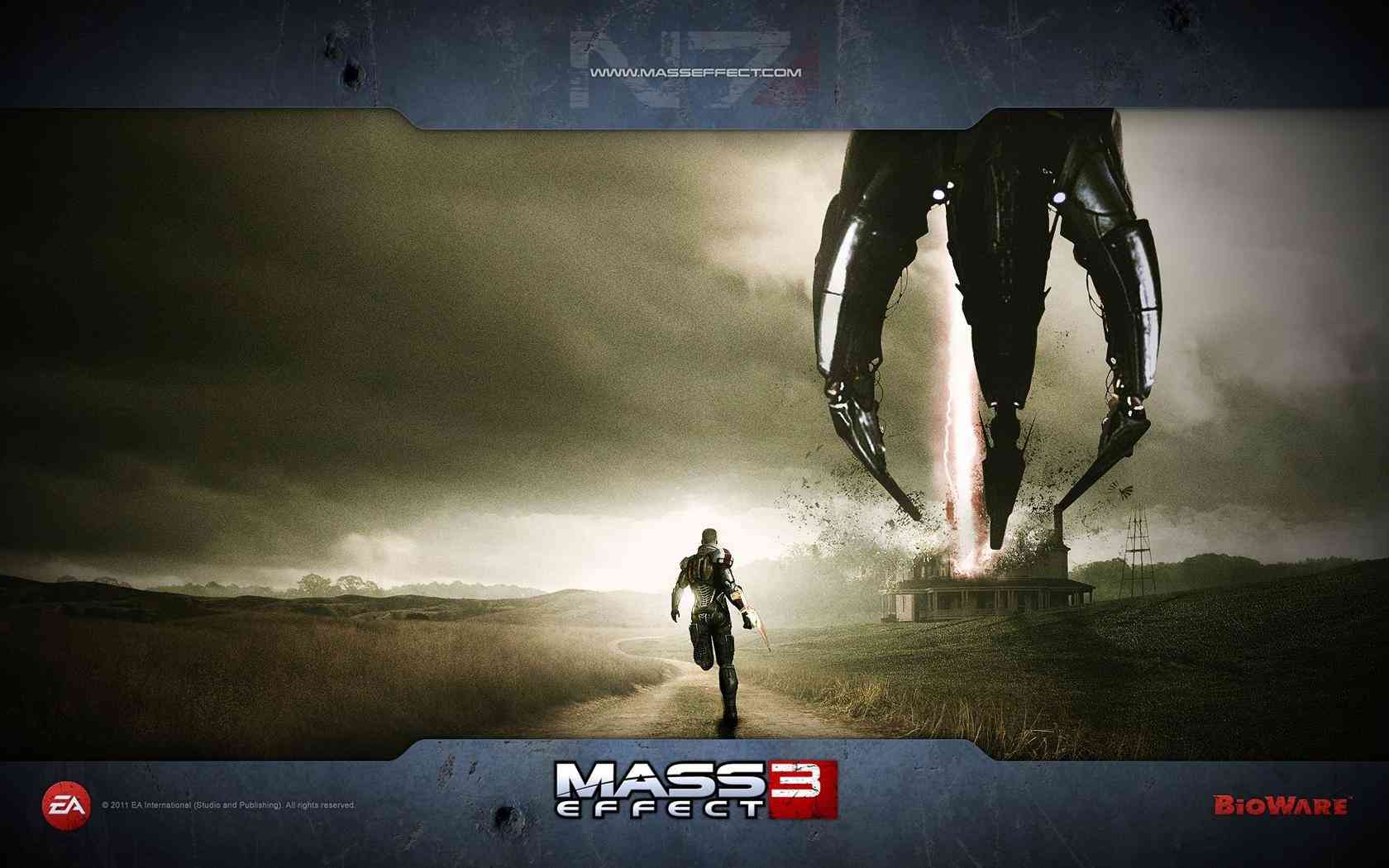
But he did not come
One of the main features of BioWare’s space opera was its cinematic nature. So, an adaptation looked like just a matter of time. The first announcements about transferring Mass Effect to the big screen were made in 2010. Legendary Pictures intended to film the original story of Shepard and his team.
Experienced writer Mark Protosevich, known for his work on “I Am Legend,” was hired as the screenwriter. He was to work with N7 universe creators Casey Hudson, Mac Walters, Ray Muzyka, and Greg Zeschuk.
However, after starting work, BioWare’s management suddenly wondered whether the full-length film format suited Mass Effect with its many characters.
In our opinion, a series would have won if turned into a series rather than a single movie. After all, many fans have long debated whether a film or a series would better suit the adaptation.
But Protosevich, in agreement with the developers, quickly left the project. In response, the film studio changed the concept, focusing on a new story with previously unknown characters.
Then, the leadership at Legendary changed, and the new managers needed to be more enthusiastic about the expensive project. Mass Effect was promptly put on hold. Alas and alack!
God of War
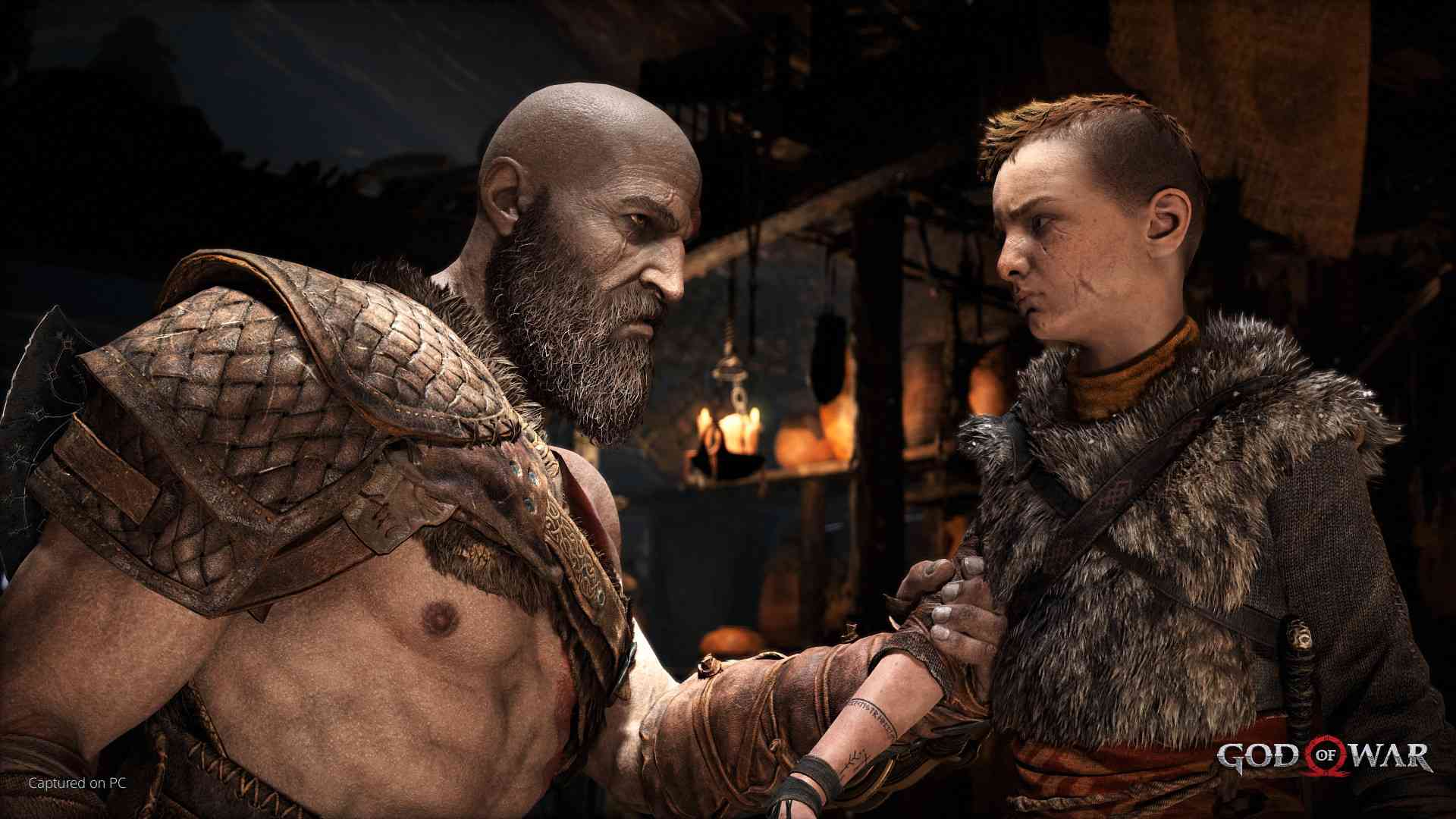
Do you see Daniel Craig here?
The adaptation of the god-slaying action game was announced immediately after the first part’s release in 2005. According to the developers, a good script was ready, and all that remained was to find a director. However, the search for the latter lasted three years until Brett Ratner took the director’s chair. Daniel Craig, who had just established himself as James Bond, was considered the only candidate for the role of Kratos.
But the following year, Ratner left the project for a chance to direct “Tower Heist” (2011 heist starring Eddie Murphy). In 2012, new authors came in and thoroughly revamped the plot. The story was now to revolve around the deep and tragic characters of Kratos and Ares, with a budget planned around $150 million.
Still, this idea did not progress either, as the film needed a director, actors, or a release date. We hoped the successful reboot of the game series would push Sony again to remember its intention for the big screen. But the project has stayed the same as a couple of statements.
Bioshock
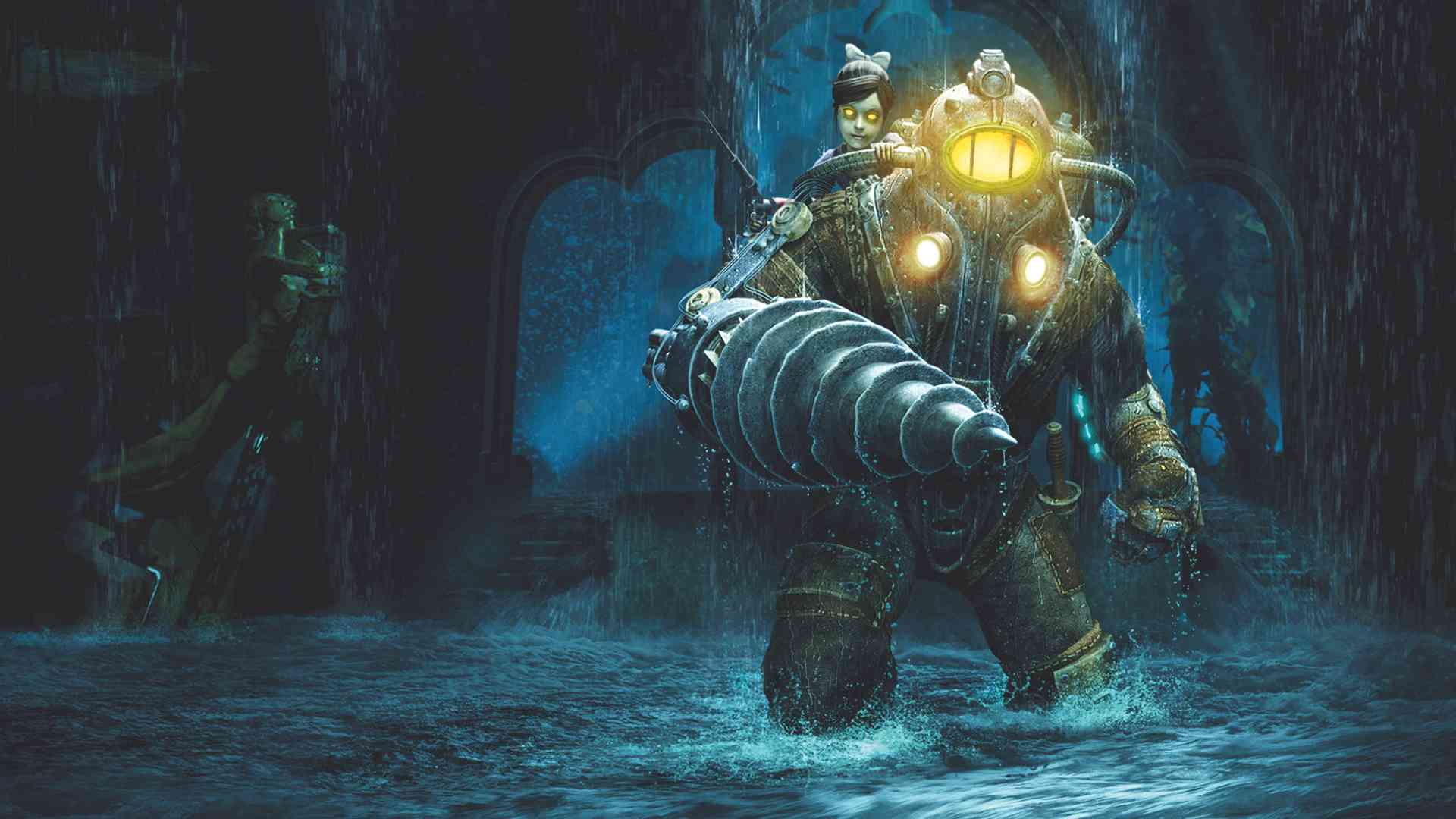
The rapture has to be expensive
The recognizable setting, the beautiful Rapture decorations, retro vibes everywhere, and a solid plot with an exciting twist. No wonder Universal Pictures hurried to acquire the rights to adapt the title from Irrational Games. The screenplay was written by John Logan, who contributed to box-office hits like “Gladiator” and “The Aviator.“
Gore Verbinski, whose “Pirates of the Caribbean” was then breaking box office records, was appointed as the director. The release was scheduled for 2010. However, eight weeks before the start of filming, the company suddenly froze all work on the project.
This decision left many puzzled and disappointed, but the trigger was the failure of Zack Snyder’s “Watchmen.”
The studio’s management feared another possible major flop, as BioShock was planned to be an adult-rated movie with a $160-180 million budget. The director was asked to rework the material to PG-13, cutting out the most bloody episodes and profanity and reducing the scale of action. Gore Verbinski refused and immediately left the team, after which “BioShock” was definitively shelved. Fans are left to enjoy the leaked concept art and the probable script and regret that filming did not start a few weeks earlier.
Halo
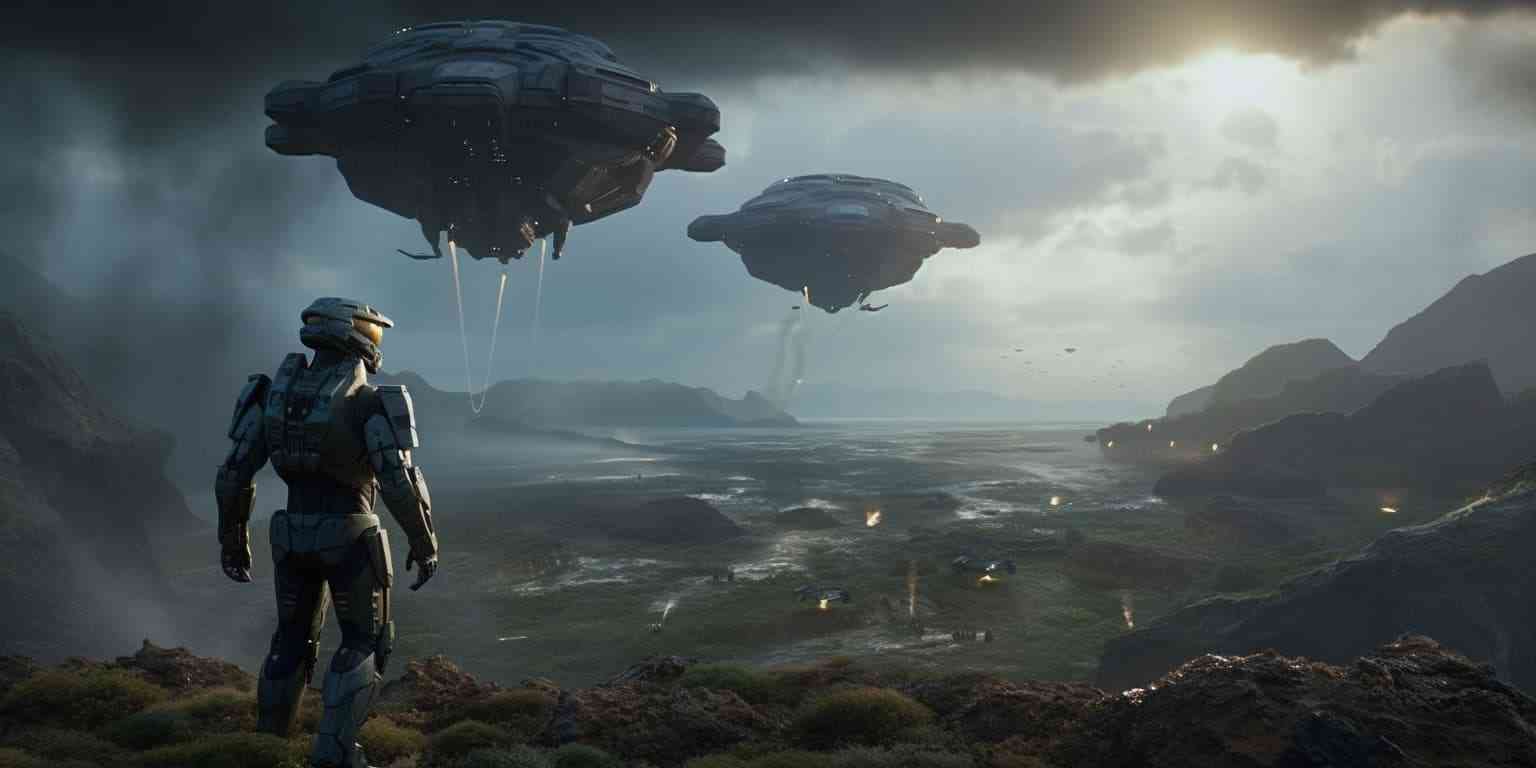
It just was too big
Microsoft was eager to turn its flagship exclusive into a feature film. In 2005, they hired Alex Garland to adapt the first game’s plot for the big screen. Copies of the material were delivered to six major Hollywood studios, and they were given one day to consider the collaboration proposal. Many didn’t believe in the project, and only Fox and Universal decided to take the risk.
Yet, as the project progressed, Microsoft became stubborn and created difficulties for production. Initially, much time was spent negotiating finances, particularly future revenue shares, settling on a $70 million budget. Peter Jackson was roped in as producer, hoping to bring Guillermo del Toro on board.
However, the decision landed on Neil Blomkamp, who revamped the script for a grittier narrative. The budget swelled to $120 million, and Jackson faced pressure to waive his profit share. Eventually, Blomkamp’s departure and the loss of faith from Fox and Universal led to the project’s shelving, only for a series to emerge years later.
Despite some fan criticisms, particularly regarding the portrayal of Master Chief, the series was acknowledged as a solid sci-fi fantasy. In a pickle, take the nickel – especially in the scope of our words about the ME series.
Call of Duty
Fans are making their own CoDs
In 2015, Activision-Blizzard founded its own production company with one sole purpose: to develop its cinematic universe based on the Call of Duty series. It was to consist of movies and series based on the game. The release of the first film was expected within a few years.
At first, things moved quite briskly. Stefano Sollima took the director’s chair, and Scott Silver (who would later write the Oscar-winning “Joker“) was the screenwriter. The main idea revolved around the story of an ordinary soldier. Undoubtedly, we (and many of you) would have seen that coming. The narrative turned into something other than a mess of combat episodes.
The future cinematic universe needed a more clear vision. The management couldn’t decide whether to transfer well-known game characters to the movies or to create new heroes. It is no surprise, as for us, that soon the management froze its Napoleonic plans without explaining the reasons.
Kane & Lynch (Oddworld)
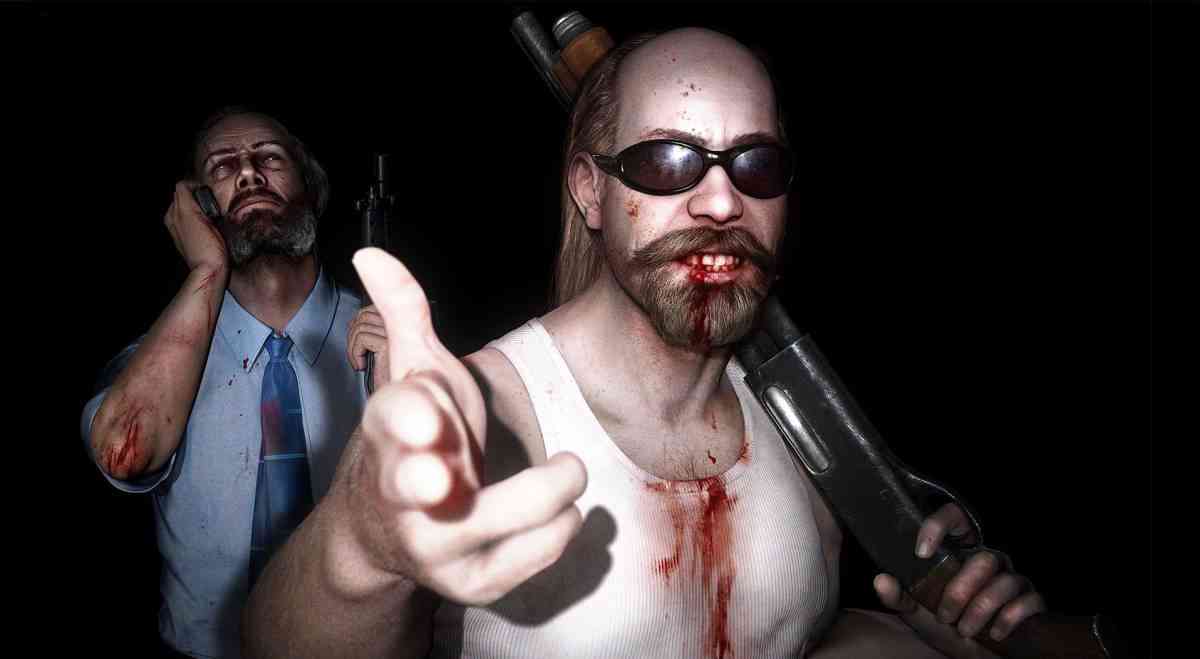
‘All I can say is that I’m probably not responsible for my wife’s death. …’
The transition of the Oddworld series from game to potential film highlights its intent to tackle serious themes through a whimsical lens. Plans for a CGI film, “Citizen Siege,” were announced in 2006 but fell through due to the financial crisis, despite interest from notable figures like J.J. Abrams.
Similarly, the “Kane & Lynch” adaptation faced setbacks despite initial enthusiasm and a noteworthy cast, including Bruce Willis and Jamie Foxx, with plans eventually abandoned due to various production challenges. Both cases reflect the difficulties of adapting video games into films, often leaving ambitious projects unrealized.
Efforts to adapt the Oddworld and Kane & Lynch games into films showcased ambitious plans that ultimately fell through. Oddworld’s proposed CGI movie, “Citizen Siege,” was scrapped following the financial crisis despite significant planning and interest from industry figures. The “Kane & Lynch” movie, initially buoyed by high-profile casting and support, collapsed due to production issues and changing plans, underscoring the challenges in bringing video games to the silver screen.
Castlevania
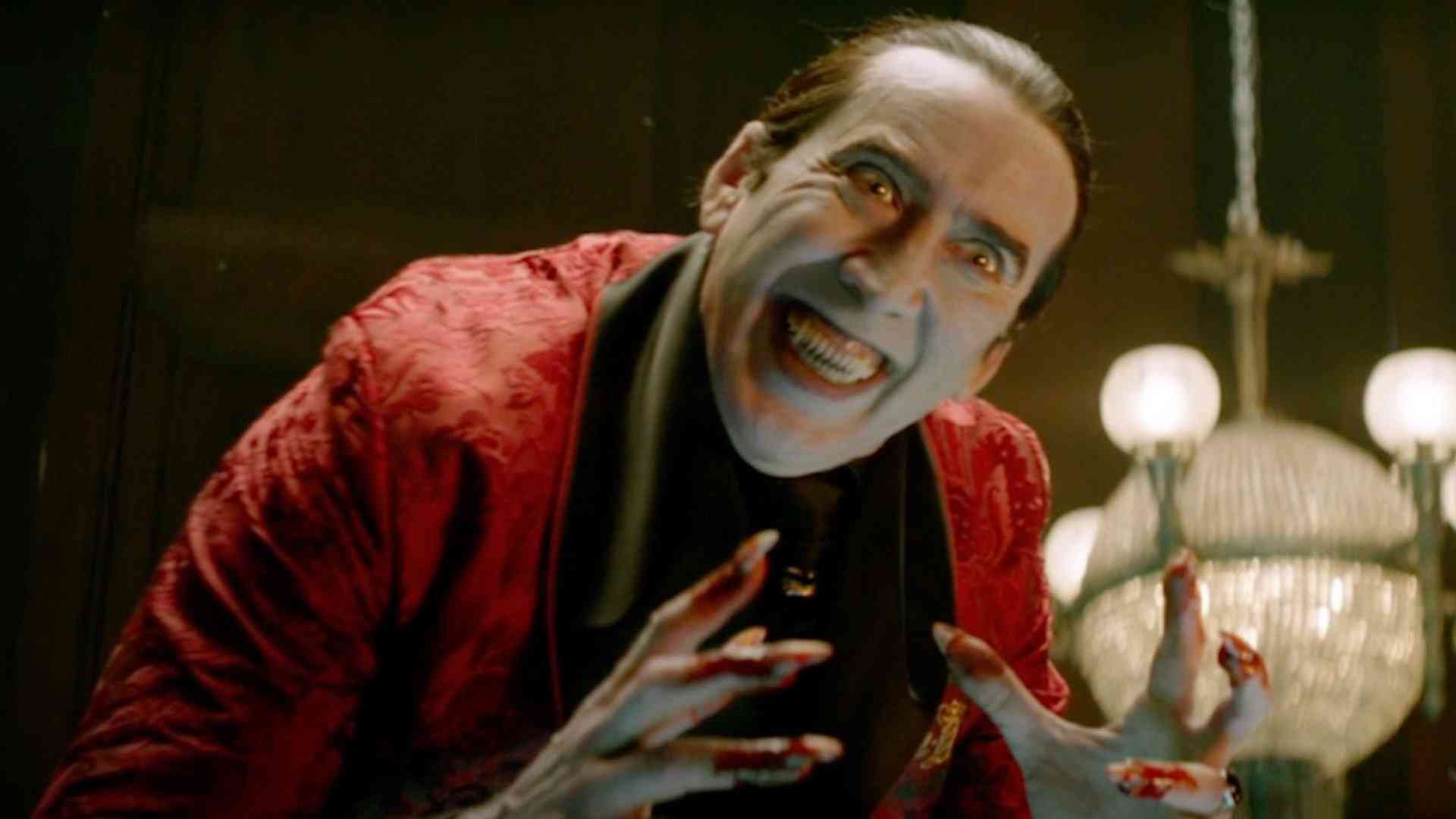
Nicolas Cage as Dracula? Incredible rumor.
In 2005, Crystal Sky Pictures seriously considered adapting the Castlevania franchise for the big screen. The series contributed to this interest with its rich lore and deep roots in classic horror films.
They raised a 50 million-dollar budget, and Paul Anderson, who had previously released the successful adaptation of “Mortal Kombat,” was appointed as the director. He planned to set the film in 15th-century Transylvania and focus on the rise of Dracula and the beginning of the long conflict between Vlad Tepes and the Belmont family.
However, due to a writers’ strike, Anderson departed, and Sylvain White was brought in as a replacement. In 2009, James Wan joined the project. We would have rejoiced. Wan’s experience creating blockbusters and horror films implied a guarantee of quality.
Nevertheless, production stalled due to problems with the franchise rights. Several companies claimed the responsibilities of producers and distributors in different regions. This quickly turned into a big ball of bureaucracy, causing the creation to die slowly. In exchange, fans received a quality animated series from Netflix.
Metroid
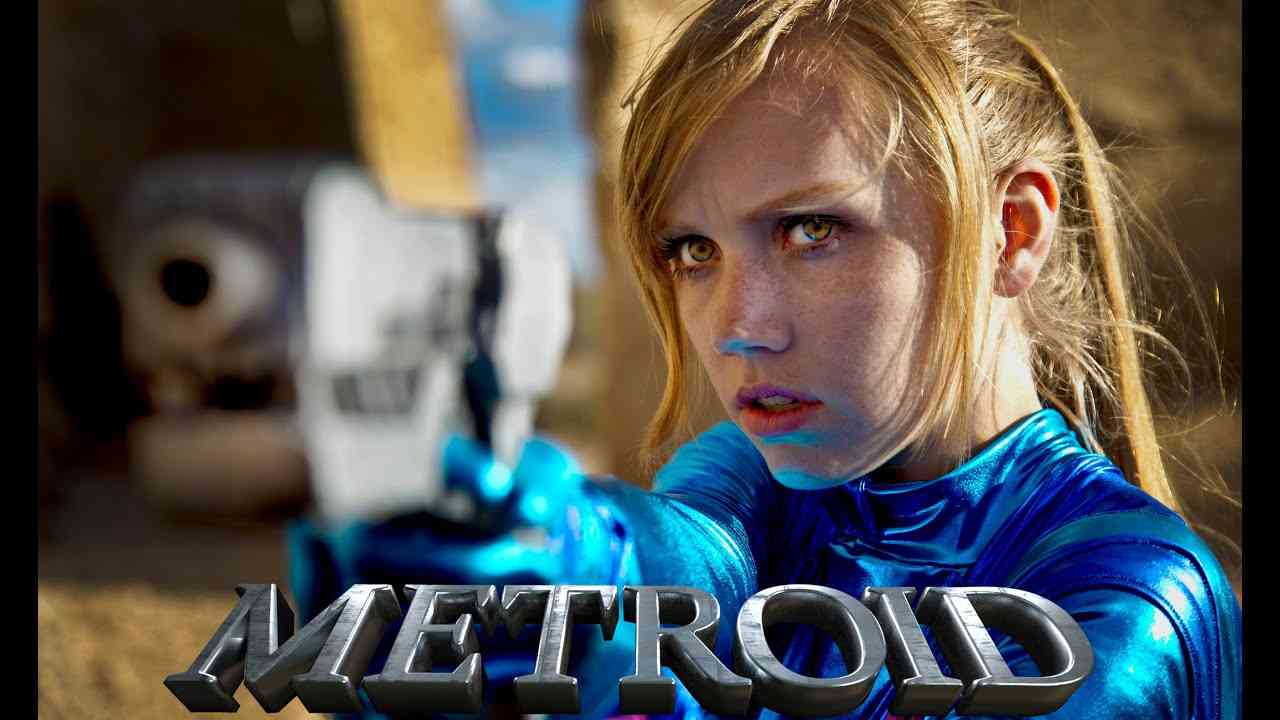
But Woo and Nintendo had different visions
On an unexpected morning in 2004, the renowned director John Woo, known for “Hard Boiled,” made a surprising decision to bring one of Nintendo’s flagship franchises to the big screen. Securing the rights proved to be a smooth process, as it turned out that many within Nintendo’s upper echelon were admirers of Woo’s cinematic flair.
This step was wildly unexpected against the background of the failed “Mario,” after which the Japanese were wary of taking risks. David Greenwalt, known for “Buffy” and “Moonlight,” was invited to work on the script. His task was to turn Samus Aran into a full-fledged character with a detailed history and personality. The film’s release in theaters was expected in 2006.
However, the project ultimately fell apart due to constant interference from Nintendo. John Woo wanted to touch on the backstory of the iconic heroine, on which the company immediately imposed many restrictions. The managers hoped that one of the company’s most recognizable heroines would be portrayed differently.
Still, having rejected some options, they offered nothing in return, as there was no clear vision for this aspect of the biography. Ultimately, everyone got tired of the confusion, and the adaptation was quickly scrapped.
Monkey Island
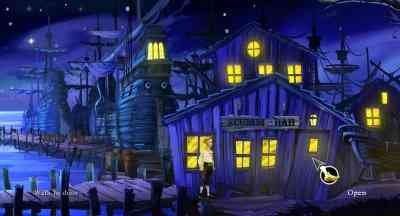
The Secret Of Monkey Island is rightly considered one of the brightest representatives of the Point-and-click genre. Therefore, many wanted to see LucasArts’ creation in the cinema, with its signature humor, charismatic characters, and beautiful music. In 2000, the world was shaken by the rumor that Steven Spielberg himself personally took on creating an animated version of the film. Pre-production reached the concept art stage, with Ted Elliott’s script as the basis.
The exact reasons why the work on the film was shelved were kept a secret. The most logical explanation seems to be that the project fell victim to reorganizations in management. The department’s leadership changed, and the new managers were not interested in an adaptation.
Hopes for an adaptation finally died after Disney purchased George Lucas’ company with all the rights to its intellectual property. Interestingly, according to rumors, Elliott used a significant part of the groundwork for the first two parts of “Pirates of the Caribbean.”
Rainbow Six: Patriots
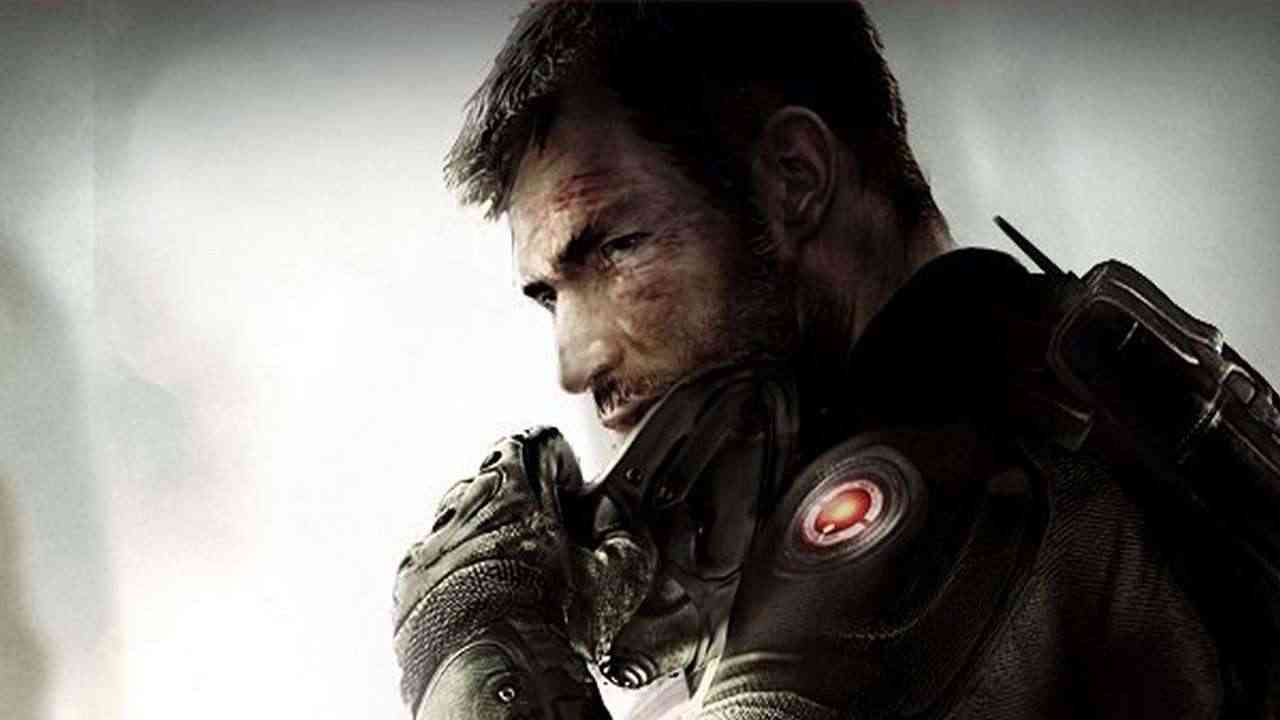
‘Not good enough’ for Ubisoft
And we finish with something closer to our main content. Although R6 Patriots turned into R6:Siege, the movie was planned before the transition. I somewhat provoked it, to be honest.
So, Rainbow Six: Patriots. Initially announced in 2011, it aimed to take Tom Clancy’s Rainbow Six series in a new direction with a strong focus on narrative and tackling themes of domestic terrorism.
Set against the backdrop of New York City, the game was to explore the actions of a terrorist group known as the ‘True Patriots,’ who targeted the city’s elite to avenge what they saw as Wall Street corruption. The game promised to challenge players with moral dilemmas, embodying the leader of Team Rainbow, James Wolfe, a former Navy SEAL who views ethics as secondary to stopping the True Patriots.
Despite the high anticipation, “Rainbow Six: Patriots” was canceled in favor of developing “Rainbow Six: Siege,” a decision influenced by the impending launch of next-gen consoles and a shift in focus towards multiplayer experiences. Technical reasons and the desire to leverage new destruction technologies that wouldn’t work well with the old-gen platforms were significant factors in this strategic pivot.
Additionally, Ubisoft’s vision evolved towards establishing Rainbow Six as a strong contender in the eSports realm, requiring a game with a robust multiplayer focus rather than a single-player narrative-driven experience. This shift in focus marked a significant turn in the franchise’s direction, emphasizing competitive play and tactical team-based actions over a story-centric approach.
Summary
As we’ve shown, the adaptation of video games into films has seen failures but successes over the years. Early attempts include “WarGames” (1983), where a computer hacker nearly starts a thermonuclear war, and “The Last Starfighter” (1984), featuring a boy recruited by aliens to fight in an interstellar war based on his gaming skills.
More recent adaptations like “Sonic the Hedgehog” (2020), praised for its fun and family-friendly approach, and “The Super Mario Bros. Movie” (2023), described as a colorful albeit thinly plotted adventure, demonstrates the ongoing appeal of video game stories in cinematic form.
The challenge of faithfully translating interactive gameplay into a passive viewing experience continues to result in a mixed reception between critics and audiences.


